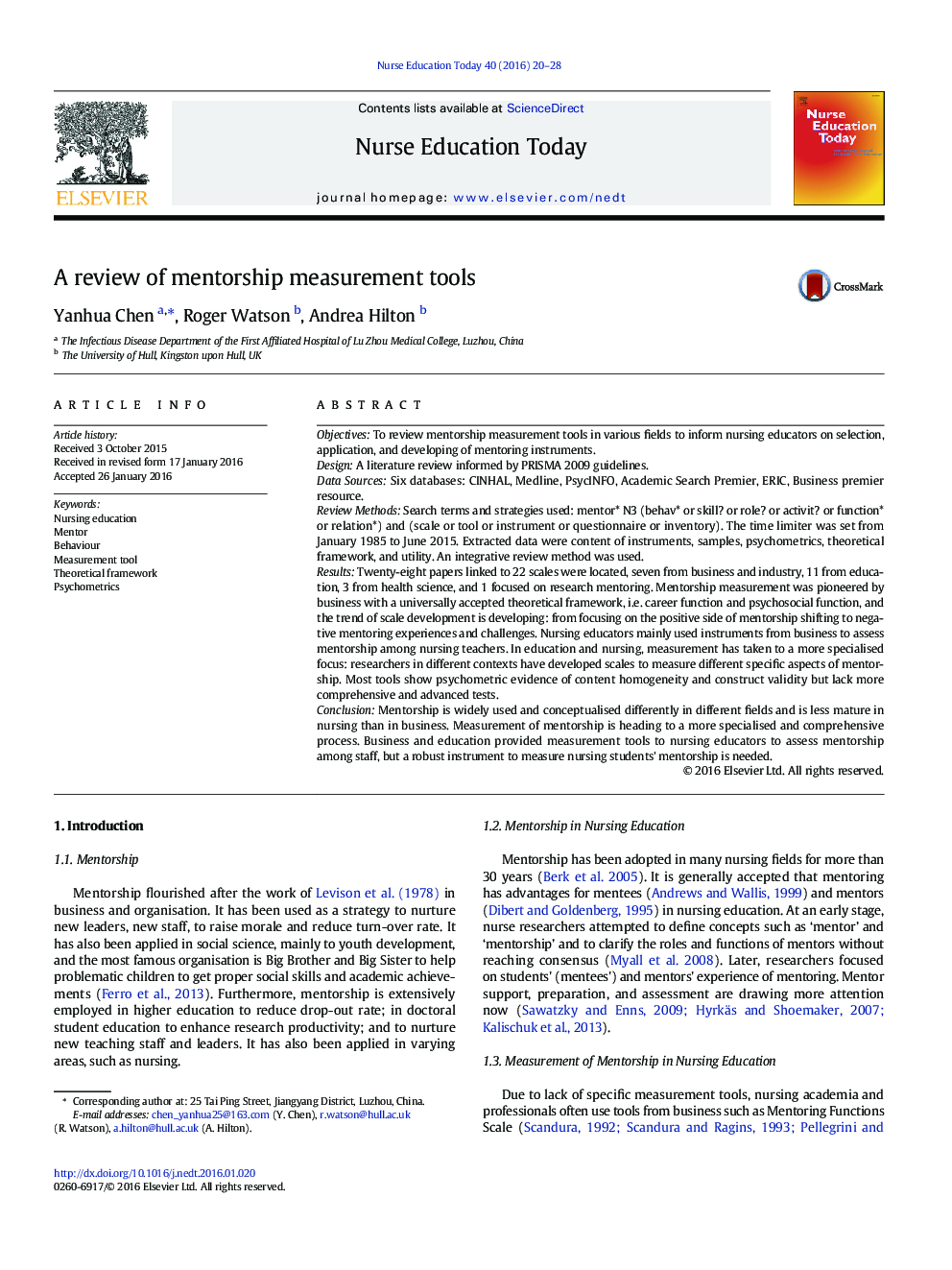| Article ID | Journal | Published Year | Pages | File Type |
|---|---|---|---|---|
| 367848 | Nurse Education Today | 2016 | 9 Pages |
•Mentorship and its research are led by business. Some robust measurement tools from business and education have been used to measure mentorship among nursing educators.•More specific tools for mentorship measuring different types of mentorship and different aspects have been developed in different areas, which gives nursing educators more choices.•Nursing researchers' started to develop their own measurement tools, but more effort needs to be invested in theoretical framework construction and psychometric evidence building.•No proper measurement tools to assess nursing students' mentorship in clinical learning have been identified.
ObjectivesTo review mentorship measurement tools in various fields to inform nursing educators on selection, application, and developing of mentoring instruments.DesignA literature review informed by PRISMA 2009 guidelines.Data SourcesSix databases: CINHAL, Medline, PsycINFO, Academic Search Premier, ERIC, Business premier resource.Review MethodsSearch terms and strategies used: mentor* N3 (behav* or skill? or role? or activit? or function* or relation*) and (scale or tool or instrument or questionnaire or inventory). The time limiter was set from January 1985 to June 2015. Extracted data were content of instruments, samples, psychometrics, theoretical framework, and utility. An integrative review method was used.ResultsTwenty-eight papers linked to 22 scales were located, seven from business and industry, 11 from education, 3 from health science, and 1 focused on research mentoring. Mentorship measurement was pioneered by business with a universally accepted theoretical framework, i.e. career function and psychosocial function, and the trend of scale development is developing: from focusing on the positive side of mentorship shifting to negative mentoring experiences and challenges. Nursing educators mainly used instruments from business to assess mentorship among nursing teachers. In education and nursing, measurement has taken to a more specialised focus: researchers in different contexts have developed scales to measure different specific aspects of mentorship. Most tools show psychometric evidence of content homogeneity and construct validity but lack more comprehensive and advanced tests.ConclusionMentorship is widely used and conceptualised differently in different fields and is less mature in nursing than in business. Measurement of mentorship is heading to a more specialised and comprehensive process. Business and education provided measurement tools to nursing educators to assess mentorship among staff, but a robust instrument to measure nursing students' mentorship is needed.
